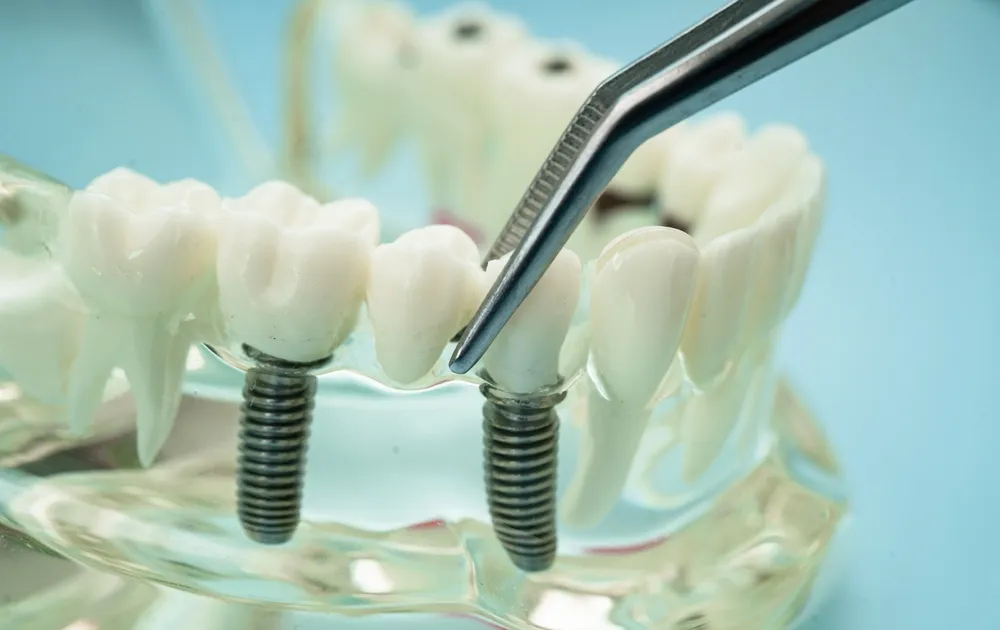Dental health is a crucial aspect of overall well-being, especially for seniors. Designed to mimic the structure of natural teeth, they provide both aesthetic and functional benefits. However, not everyone may be an ideal candidate for dental implants, and the decision to proceed with this treatment often depends on individual circumstances. If you’re considering dental implants, understanding their process, benefits, and potential limitations can help you make an informed decision.
 Shutterstock/sasirin pamai
Shutterstock/sasirin pamaiWhat Are Dental Implants?
Dental implants are artificial tooth roots, typically made of titanium, that are surgically placed into the jawbone. They serve as a stable foundation for replacement teeth, such as crowns, bridges, or dentures. Unlike traditional dentures or bridges, dental implants integrate with the jawbone, offering a permanent and natural-feeling solution.
While dental implants are a popular choice, the success of the procedure often depends on the patient’s oral health and specific needs. If you’re exploring this option, it’s essential to consult with a dentist or oral surgeon to assess your suitability.
Who Might Be a Candidate for Dental Implants?
Dental implants could be an excellent option if you meet certain conditions:
- Adequate Jawbone Density:
If your jawbone has sufficient density and volume, it may provide a strong foundation for the implant. However, if bone loss has occurred due to gum disease or prolonged tooth loss, a bone graft might be necessary before the implant procedure. - Healthy Gums:
If your gums are free from infection and disease, your chances of a successful implant increase. Individuals with untreated gum disease may need to address this condition before proceeding with dental implants. - Commitment to Oral Hygiene:
Dental implants require meticulous care to prevent infection or failure. If you’re willing to maintain good oral hygiene and attend regular dental checkups, you may be a suitable candidate. - Non-Smoker (or Willing to Quit):
Smoking can impede the healing process and increase the risk of implant failure. If you’re a smoker, quitting before and after the procedure could improve the success rate of your implants. - Overall Health:
If you are in good general health, with no conditions like uncontrolled diabetes or immune disorders, you may be eligible for dental implants. However, if health concerns exist, your dentist may recommend alternative treatments.
Affording Dental Implants: Government Programs and Subsidies
While dental implants are not typically covered under Australia’s public healthcare system, seniors may be eligible for subsidized dental care under specific schemes.
- State-Based Public Dental Services:
Each Australian state and territory has public dental clinics that provide low-cost or free dental services for eligible residents, including seniors. While dental implants may not be included, these clinics often offer treatments that could address related needs, such as dentures or tooth extractions. Seniors with a Pensioner Concession Card (PCC) or Commonwealth Seniors Health Card (CSHC) are often eligible. - The Child and Adult Public Dental Scheme (CAPDS):
Some states extend subsidized dental care to adults under this program. If you’re a senior and hold a relevant concession card, you could inquire whether any implant-related procedures are partially covered.
Nonprofit and Charitable Organizations
Several nonprofit organizations provide affordable dental care for seniors. While availability may vary by location, these groups often collaborate with local dental clinics to offer services at reduced rates. Some options include:
- Australian Dental Health Foundation (ADHF): This organization connects individuals with pro bono dental services. While implants are less commonly included, it’s worth exploring options through their network.
- Local Community Dental Clinics: Many communities have dental programs aimed at seniors, which may offer lower-cost solutions for implants or alternative treatments.
Making an Informed Choice About Dental Implants
While dental implants can be costly, seniors in Australia have several avenues to reduce expenses. From government programs and private insurance to nonprofit organizations and dental schools, a variety of options exist to make implants more accessible. Exploring these opportunities and consulting with a trusted dental professional can help seniors achieve better oral health without breaking the bank.


